The Mamdani moment: A tidal wave in the heart of empire
The victory was no fluke; it was a clarion call, echoing from the bodegas of the Bronx to the lofts of Williamsburg, proclaiming that audacity, not accommodation, is the currency of change.
.JPG) Zohran Mamdani greets a supporter during a watch party for his primary election, which includes his bid to become the Democratic candidate for New York City mayor in the upcoming November 2025 election, in New York City, U.S., June 25, 2025. / Reuters/David 'Dee' Delgado/File Photo
Zohran Mamdani greets a supporter during a watch party for his primary election, which includes his bid to become the Democratic candidate for New York City mayor in the upcoming November 2025 election, in New York City, U.S., June 25, 2025. / Reuters/David 'Dee' Delgado/File Photo
In the neon-drenched sprawl of New York City, where skyscrapers pierce the sky like gilded daggers, a seismic shift occurred on the night of Nov. 4, 2025.
Zohran Mamdani, the unassuming son of a Gujarati academic and a Punjabi filmmaker, shattered the glass ceiling of American urban politics—not with a hammer, but with the quiet thunder of principled conviction.
At 34, he became the youngest mayor-elect of the nation’s largest metropolis in over a century, edging out a field of entrenched moderates and billionaire-backed insurgents in a Democratic primary that doubled as a national referendum on the soul of the left.
The victory was no fluke; it was a clarion call, echoing from the bodegas of the Bronx to the lofts of Williamsburg, proclaiming that audacity, not accommodation, is the currency of change.
Mamdani’s ascent defies the arithmetic of power. Trump loomed large, his shadow cast via Truth Social rants branding the candidate a “radical socialist import” unfit for the “real New York.”
Elon Musk, ever the digital puppeteer, amplified smears on X, decrying Mamdani’s “anti-innovation” tax hikes on the ultra-wealthy as a “war on progress.”
Billionaires from Wall Street titans to Silicon Valley exiles funneled dark money into opposition PACs, while the Democratic establishment—haunted by ghosts of 2016—offered tepid endorsements at best, outright sabotage at worst.
Andrew Cuomo, the disgraced ex-governor nursing grudges like fine wine, whispered poison into the ears of party elders. Yet Mamdani won, not by 2 points or 5, but by a resounding 12-point margin in the final tally, propelled by a coalition of young voters, union households, and immigrant communities who saw in him not a politician, but a prophet.
To grasp the alchemy of this triumph, one must first reckon with Mamdani’s provenance—a tapestry woven from exile and excellence. Born in Kampala, Uganda, in 1991 to Mahmood Mamdani, the eminent Columbia University professor whose seminal works like Citizen and Subject dissect the fractures of postcolonial power, and Mira Nair, the Oscar-nominated director whose films—Salaam Bombay!, Mississippi Masala, Monsoon Wedding—have humanized the diaspora with unflinching tenderness, Zohran embodies the hybrid vigor of the global south.
He arrived in the U.S. as a child, fleeing instability, and only naturalized as an American citizen in 2018. Seven years later, he stands as the city’s chief executive, a first-generation immigrant who turned personal precarity into public poetry.
In his victory speech at the Javits Center, delivered under a cascade of confetti that seemed to mimic the monsoon rains of his mother’s cinematic reveries, Mamdani invoked this lineage: “I am the son of immigrants who dreamed not of walls, but of worlds without them. Tonight, New York says: We build bridges, not bunkers.”
That speech, a masterclass in rhetorical restraint laced with revolutionary fire, has already been dissected in the nation’s op-ed pages. In The New York Times, Mamdani’s words were lauded as “a balm for a bruised body politic,” with columnist Jamelle Bouie noting how the mayor-elect wove personal narrative into policy prescription.
He pledged universal childcare, rent freezes on stabilized units, and a “Green New York” initiative to retrofit tenements with solar panels—measures that, in his telling, are not luxuries but lifelines. “Poverty is not a character flaw; it’s a policy choice,” he declared, a phrase that Bouie likened to Bernie’s barnburners but tempered with the empathy of a community organizer who once canvassed Queens door-to-door for the DSA.
The Wall Street Journal, ever the sentinel of capital’s ramparts, was less effusive, framing Mamdani’s oratory as “a velvet glove over an iron fist of redistribution.” In a post-election interview, he doubled down, telling reporter John Paul Rollert that taxing unrealized gains on fortunes over $100 million isn’t vengeance—it’s arithmetic.”
The Journal’s pages are filled with paeans to markets as moral arbiters,” Mamdani quipped, “but when those markets leave millions in the cold, who arbitrates the morality?” His candor stung; the paper’s editorial board, still smarting from the loss of their favored moderate, conceded that Mamdani’s “outsider allure” had “exposed the hollowness of technocratic governance.” It was a rare admission: the moneyed class, for all its megaphones, had misread the room.
Across the Atlantic, The Economist—that bastion of liberal centrism—probed deeper into Mamdani’s intellectual architecture. In a profile penned by their New York correspondent, they highlighted his Washington Post op-ed from June 2025, where he excoriated Israel’s Gaza operations as “a moral catastrophe enabled by American complicity.”
As a Muslim DSA member who has vocally opposed Netanyahu—vowing in a viral clip to “arrest him on sight if he sets foot in JFK”—Mamdani’s stance was electoral kryptonite in a city with deep pro-Israel lobbies. Yet he won 68% of the Jewish vote in progressive precincts like Brooklyn’s Park Slope, per exit polls, by framing his critique not as anti-Semitism but as anti-imperialism.
“Zionism’s excesses,” he wrote in the Post, “mirror the very nationalism we fled,” drawing parallels to Uganda’s Idi Amin expulsions that scarred his family. The Economist marveled at this tightrope walk: “In an era of polarized foreign policy, Mamdani threads the needle, emboldening a left that has often cowered before accusations of dual loyalty.”
The Washington Post itself, in a symposium of reactions, captured the speech’s domestic ripple: Mamdani’s call for “abolishing the subways’ fare evasion as a crime of poverty” was hailed by Ruth Marcus as “a radical reimagining of justice that could cascade to Capitol Hill.”
His opinions there, spanning housing as a human right to defunding the NYPD’s surveillance drones, reveal a mind schooled in his father’s decolonial theory—power, Mamdani argues, is not possessed but performed, and performance can be disrupted. These aren’t soundbites; they’re scaffolding for a socialist renaissance.
So, what of the larger American political fabric? Mamdani’s win is no isolated tremor; it’s the foreshock of a fault line cracking wide.
First, the socialist agenda: In a nation where “socialism” still evokes McCarthyite shudders, Mamdani’s platform—Medicare for All at the municipal level, worker co-ops in vacant storefronts—garnered endorsements from the Working Families Party and even reticent AFL-CIO locals.
His victory emboldens the Squad’s progeny in blue strongholds like Seattle and Minneapolis, where mayoral races loom in 2026. Expect a proliferation of “Mamdani clauses” in city charters: public banking initiatives, as he championed in Albany, are now viable in Los Angeles’ sprawl or Chicago’s wards.
The tide has turned not because voters crave utopia, but because they’ve tasted dystopia—post-pandemic evictions, AI-driven job hemorrhage—and found incrementalism indigestible.
Second, vigorous opposition to Zionism: Mamdani’s unapologetic stance, articulated in The Economist as “principled particularism”—solidarity with Palestinians rooted in his Muslim identity without alienating allies—recalibrates the left’s foreign policy fault lines. In a post-October 7 world, where campus protests met crackdowns, his win signals that anti-Zionist positions needn’t be political suicide.
Jewish Voice for Peace, which mobilized 20,000 volunteers for his campaign, sees this as vindication; expect ripple effects in Pennsylvania’s Senate race, where Bob Casey faces a DSA-backed challenger echoing Mamdani’s Gaza critique. Yet caveats abound: backlash from AIPAC’s coffers could harden, turning blue-state primaries into proxy wars over the Middle East.
Third, a similar approach to politics in other blue states? Absolutely, and with velocity. Mamdani’s model—raw authenticity over polished evasion, grassroots megaphones via TikTok lives over donor dinners—exports seamlessly to California’s recall-prone chaos or Massachusetts’ Brahmin backrooms.
His youth, a century’s record, shatters the gerontocracy: at 34, he’s younger than AOC was upon entering Congress, inspiring a wave of Gen-Z insurgents. Immigrants, too, find fresh footing. As the son of a naturalized citizen who arrived with “nothing but a suitcase and a screenplay,” Mamdani normalizes the ascent of the “unhyphenated”—South Asians, Latinos, Africans—from precinct captains to power brokers.
In a diversifying electorate, where nonwhite voters hit 40% nationally by 2024 Census projections, this democratizes the dais, diluting the WASPy residue in local GOPs and Dem machines alike.
Obama’s olive branch—a private call offering “pathways to the White House,” per Politico leaks—hints at establishment co-optation, but Mamdani’s reply, leaked to Vox, was vintage: “Gratitude, but governance over guidance.”
Bernie Sanders, at 84, tweeted that he “feels younger today,” his Medicare-for-All torch passed not to a heir, but a horde. Major opponents? Silenced. Cuomo slinks to cable purgatory; Musk pivots to Mars memes; Trump’s orbit mutters about “rigged urban machines” while privately polling Mamdani’s national viability.
Finally, unleashing effective opposition to Trump? Unequivocally. The 47th president’s second term, now ten months in, reels from judicial rebukes and midterm whiplash—Democrats’ sweep in Virginia and New Jersey, Pennsylvania’s progressive judicial trifecta, Texas’ redistricting rebuff.
Mamdani’s Gotham fortress becomes a bulwark: sanctuary policies fortified, federal funds clawed back for MAGA pet projects. More crucially, he models resistance as resonance—turning Trump’s bombast into a boomerang.
In this mirror, Trump beholds his own reflection distorted: a populist of the people, not the penthouses, who wields identity not as division but as diaspora. The man who stormed the Capitol with a mob now faces a mayor who storms City Hall with a movement.
Mamdani doesn’t just oppose Trump; he obsoletes him, proving that the real disruption isn’t disruption for its own sake, but for the dawn it ushers. As the mayor-elect quipped in his WSJ sit-down, closing the loop on a night that rewrote the rules: “They called me an outsider. But in New York, the only insiders are the ones who build the city for all.” The empire’s heart beats progressive.
The author co-founded the national Hindi daily Jansatta and was the chief editor of Dinamaan, the national newsweekly of The Times of India Group.
(The views and opinions expressed in this article are those of the author and do not necessarily reflect the official policy or position of New India Abroad.)
ADVERTISEMENT
ADVERTISEMENT
E Paper
Video




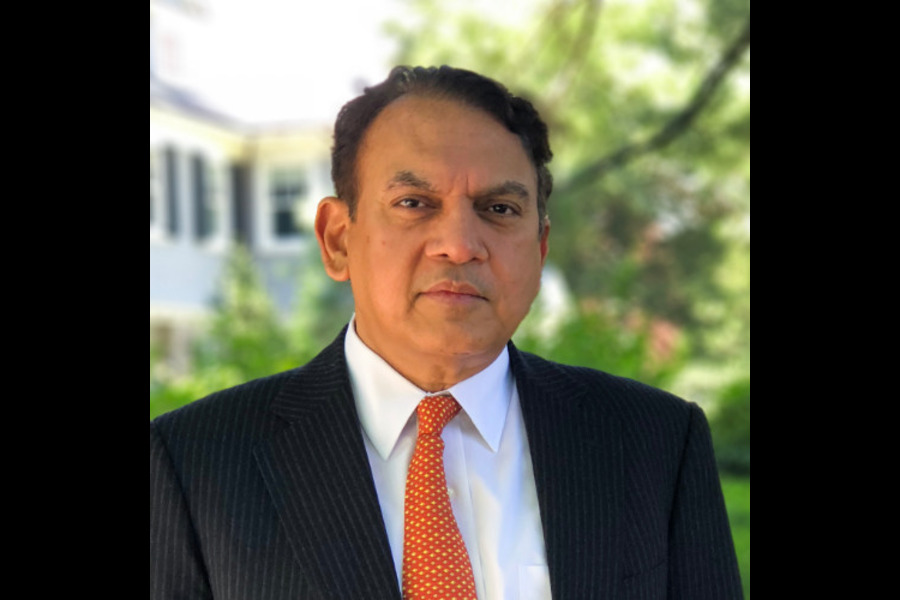 Satish Jha
Satish Jha
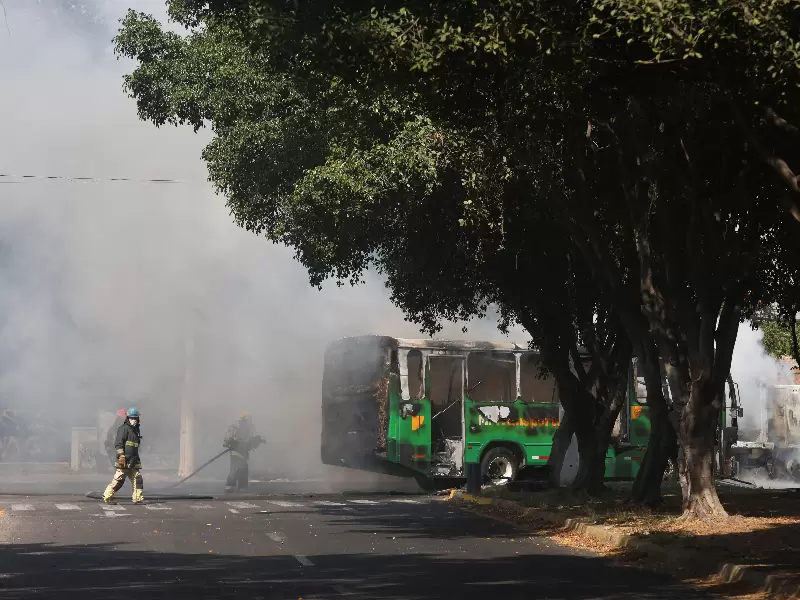


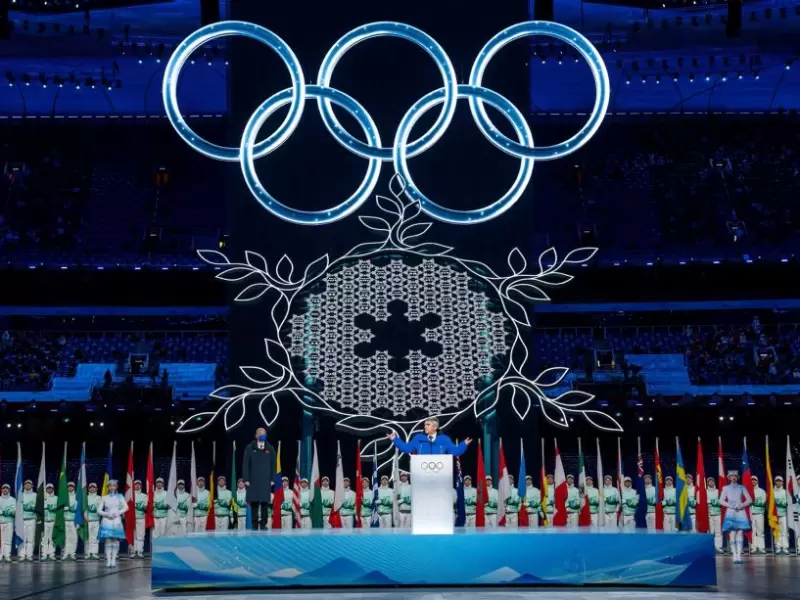
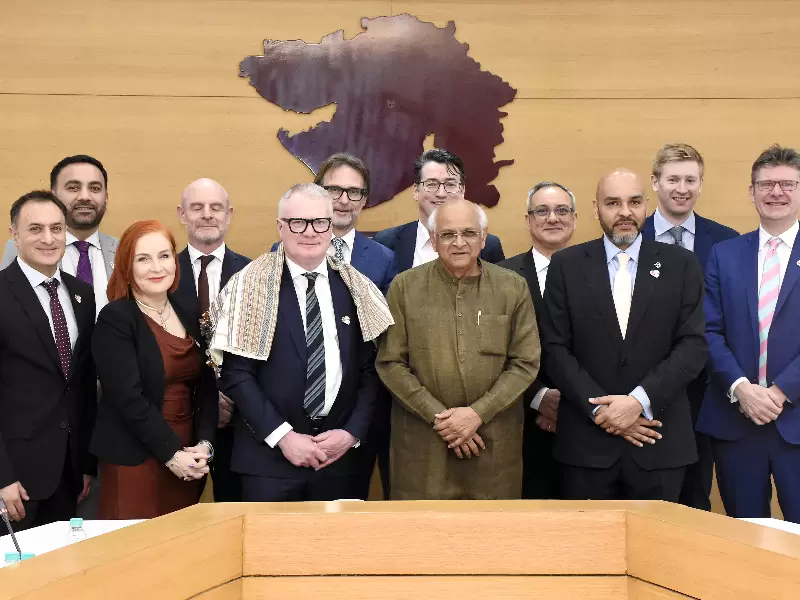
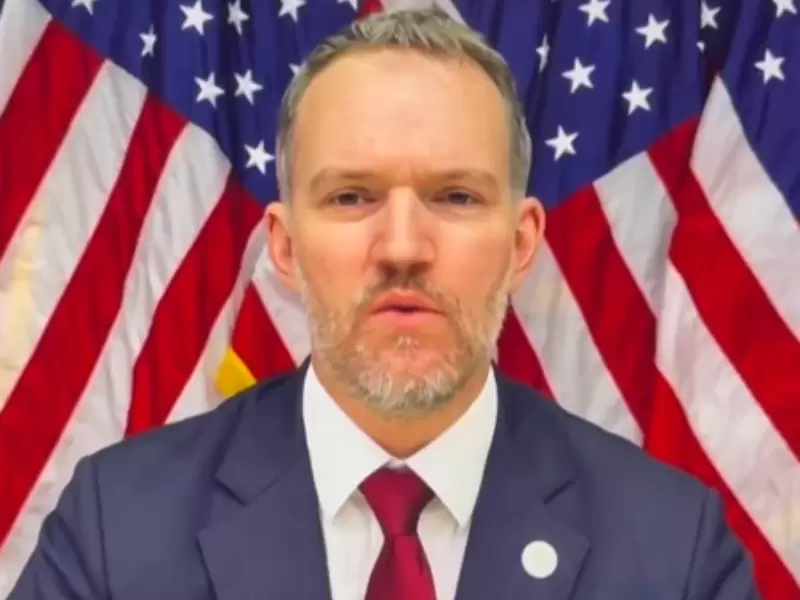
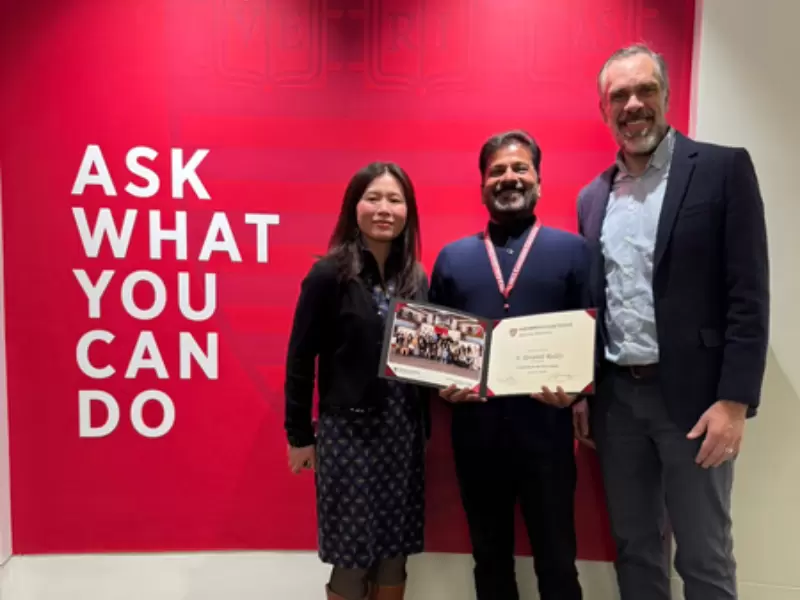






Comments
Start the conversation
Become a member of New India Abroad to start commenting.
Sign Up Now
Already have an account? Login